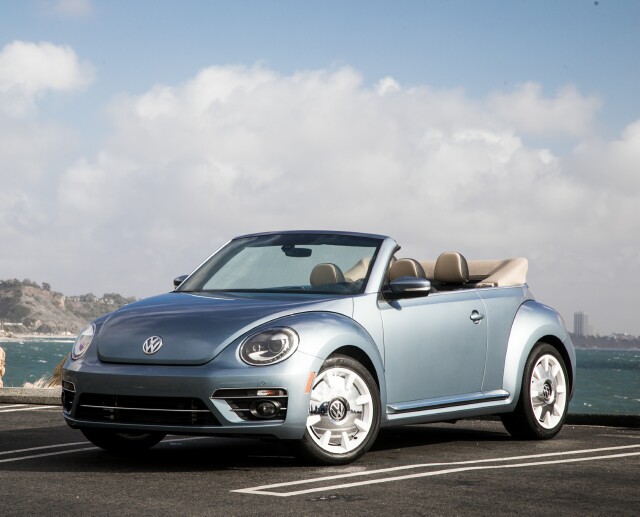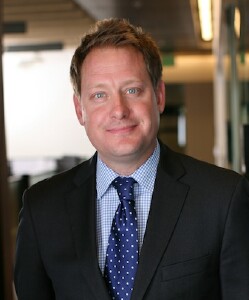VW Shakes up Global Marketing and Pivots to Electric

Last week, VW announced a major marketing change, consolidating what had been 40 ad agencies globally to just three: The Britain-based multinational WPP in North America, Cheil (the incumbent) in China, and Omnicom Group for Europe and South America. The marketing budget will stay the same at $1.7 billion, but the company wants to see its marketing spend become 30 percent more efficient by 2020. Digital ads will become nearly 50 percent of the mix by that time (up from 25 percent now).
VW has spent the last seven months reviewing its global ad strategy, alighting on a regional approach. The switch to WPP displaces Interpublic’s Deutsch, which had been in place since 2009. WPP’s new team for VW will be called The VW Partnership. DDB loses the business in Europe.
The marketing changes come in the wake of a major pivot in product planning. In the wake of the Volkswagen diesel scandal, Dr. Herbert Diess, Chairman of the Board of Management of Volkswagen AG, told the Geneva Motor Show audience in 2016, “Volkswagen is changing.” The cars, he said, “will become younger, more emotional and more exciting.”
To an extent, VW has fulfilled that pledge. With diesel in the doghouse, a company that used to tout its superiority to electric mobility has dramatically changed its tune and is now fully committed to battery vehicles. “Our future lies with electric mobility,” said VW of America CEO Scott Keogh at the just-concluded Los Angeles Auto Show. “EVs will not kill our automotive fun.” On the company’s stand was an electric cargo bike and a delivery version of the I.D. Buzz, a rebirth of the famous Microbus that will be sold -- only with batteries -- starting in 2022.
Like all automakers, VW is also committed to SUVs -- which are 46 percent of its sales. But unlike the Big Three automakers, it is not largely abandoning regular passenger cars. Keogh told me that we will eventually see the sedan market rebound, but not to the dominant position it once had. “We’re going to stick with sedans, but be smart about it,” Keogh said. One probably savvy move was finally killing the poor-selling Beetle; the last one will be a 2019 model Final Edition Malibu convertible (pictured at top).
With all that as background, MediaVillage posed some questions to Jim Zabel (pictured below), VW’s Senior Vice President of Marketing.
Jim Motavalli: How does VW perceive the sedan market these days?
Jim Zabel: It is true that the sedan market is shrinking but it is still a Top Five segment in the U.S. We remain committed to sedans and believe that you win with strong design, reliability and consumer-focused technology.
Motavalli: Are the automakers, including VW, ahead of consumers in offering electric cars?
Zabel: Just speaking for Volkswagen, our offerings have been according to the demand. As that demand is growing, so will our offering of electric vehicles. We will see the introduction of the first model from the all-new I.D. family, coming to market in early 2020. And that will be followed by many more models.
vehicles. We will see the introduction of the first model from the all-new I.D. family, coming to market in early 2020. And that will be followed by many more models.
Motavalli: Do you have a profile of the average VW buyer? Income? Demographics? I realize the product portfolio is diverse.
Zabel: The current VW new-car buyer is roughly split 55 percent male/45 percent female. The mean age is 52 years old, with 33 percent of the customer base falling between the ages of 20 and 44. In the past year as the portfolio has expanded the SUV offering, we have grown to roughly 30 percent of customer households with children, and 50 percent living in suburban communities. Income wise, 48 percent of consumers have a household income of $100,000 or less.
Motavalli: What is VW’s strategy with TV and radio advertising?
Zabel: Given TV’s reach, it is still an important part of our media mix. However, we don’t think of it as only linear TV. We look at reaching our target through a video strategy that is inclusive of linear, streaming services, OTT [media distributed directly to consumers via the Internet] and online branded content.
Motavalli: How does the public perceive VW now? Scott Keogh said at the LA Show, “Trust needs to be earned. The rest is just talk.” What is the company doing to earn back that trust in the wake of the diesel scandal?
Zabel: We need to deliver vehicles Americans want, at the right time and at the right price. We believe customers have responded, since so far we are outperforming the market in the U.S. with sales up 5.4 percent through October compared to total market growth of 0.2 percent. That continues the trend from last year where sales gained more than five percent in 2017, when much of the market was down.
Motavalli: Could China become a more important market for VW than the U.S.? You had record sales there in 2017, up 5.9 percent to 3.18 million -- including more than 400,000 SUVs.
Zabel: China is certainly an important market for VW but we want to grow in the U.S. and become a relevant volume brand, with a full line of cars and SUVs. We planned roughly $7 billion in investments in the region from 2015 through 2019 and have recently pledged an additional $3.3 billion through 2020. Roughly $1.2 billion of those investments will be directly going to the U.S. market.
Click the social buttons above or below to share this content with your friends and colleagues.
The opinions and points of view expressed in this content are exclusively the views of the author and/or subject(s) and do not necessarily represent the views of MediaVillage.com/MyersBizNet, Inc. management or associated writers.


